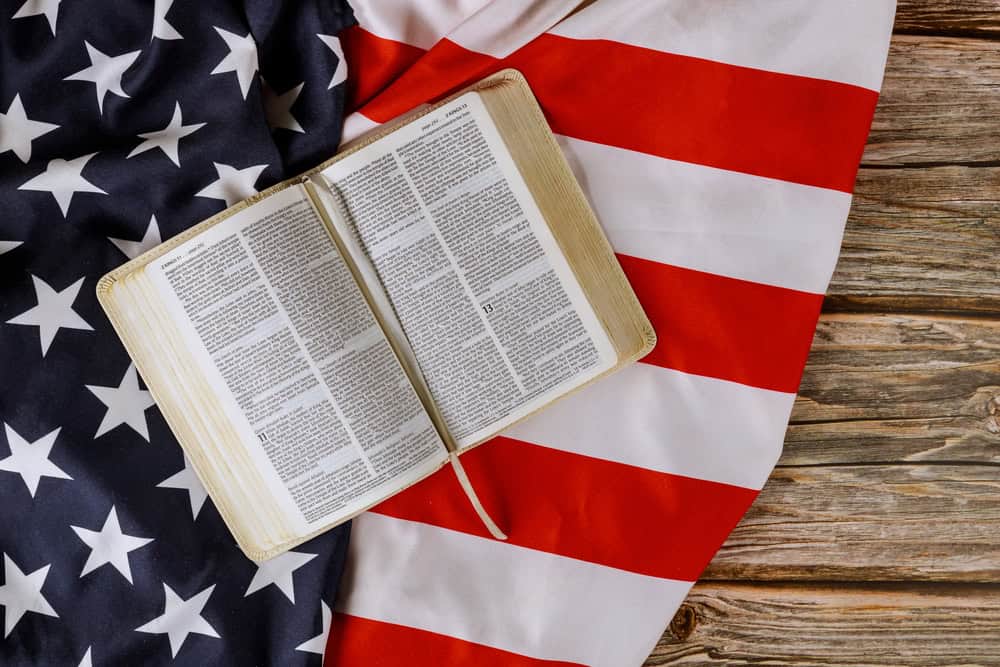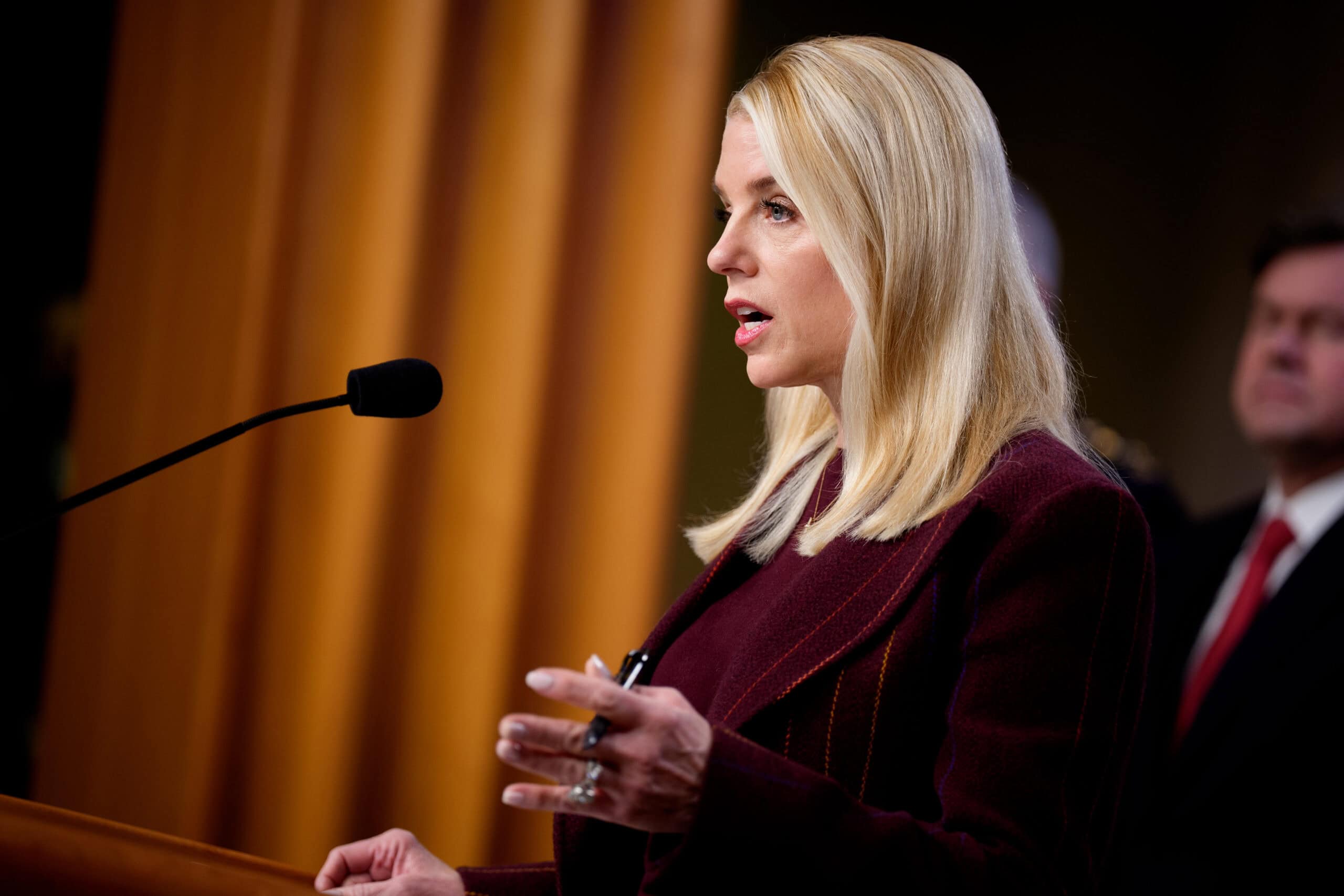The “Equality Act” Would Mark the End of Religious Conscience

The mis-named “Equality Act,” also known by its bill number, HR 5, is due for a vote in the U.S. House of Representatives next week. The bill would add sexual orientation and gender identity to the 1964 Civil Rights Act’s list of protected classes, but its real impact will be to significantly change America’s legal landscape, as we have detailed elsewhere.
Perhaps HR 5’s most egregious—and intentional—effect will be to eradicate religious conscience as a defense to acts of government coercion that seek to force businesses and religious institutions to comply with the bill’s radical sexual ideology against their conscience. It’s a blatant attempt to drive faith-based entities from the public life of the nation.
How would this happen?
The bill includes a small paragraph toward the end that says this:
“The Religious Freedom Restoration Act of 1993 (42 U.S. C. 2000bb et seq.) shall not provide a claim concerning, or a defense to a claim under, a covered title, or provide a basis for challenging the application or enforcement of a covered title.”
Let’s break down what that innocuous-sounding language really means.
When the federal government forces someone to act contrary to their religious beliefs, that person usually has two defenses: The First Amendment’s religion clause, or the Religious Freedom Restoration Act, also known as RFRA.
But the U.S. Supreme Court decided in a 1990 case that the First Amendment’s religious freedom protections do not apply to protect religious conscience from what it called “neutral laws of general applicability.” That would include nearly any law that doesn’t target religion by name. That court-created loophole in the First Amendment so motivated a bi-partisan Congress at the time that it passed RFRA in 1993 by a voice vote in the House and by 97-3 in the Senate.
RFRA protects all of us, including faith-based entities and businesses (see the 2014 Hobby Lobby decision) from any government action that “substantially burdens religious free exercise” unless it furthers a “compelling government interest” by the “least restrictive means.” Since 1993, 21 states have also adopted RFRAs of their own.
What HR 5 does is to remove—in most cases—the last religious freedom defense available—RFRA—against the imposition of the bill’s sexual ideology across the nation. Wedding vendors like Jack Phillips will be back in court again with no religious conscience defense to support their refusal to create a wedding cake for same-sex nuptials. Employers would have to provide insurance for abortion and so-called “sex-reassignment” procedures. Doctors and nurses and hospitals will have no defense for refusing to provide controversial medicines such as puberty blocking drugs or cross-sex hormones to people suffering from gender dysphoria, or for declining to remove healthy organs from such people in a vain attempt to change their sex.
Yes, there are conscience laws in other federal statutes and agency regulations that currently offer some conscience protection to religious institutions and healthcare professionals, but those won’t last long if HR 5 is passed. In fact, a court one day could rule that HR 5 supersedes any existing federal conscience protection that might otherwise apply.
This conscience-killing bill would relegate the free exercise of religion, guaranteed by the First Amendment, to secondary status outside the public square. For those of us who are concerned that the current anti-Christian worldview we’re witnessing in politics and in the culture is meant to silence the Christian voice completely, the “Equality Act” will become our worst fears realized.
ABOUT THE AUTHOR

Bruce Hausknecht, J.D., is an attorney who serves as Focus on the Family’s judicial analyst. He is responsible for research and analysis of legal and judicial issues related to Christians and the institution of the family, including First Amendment freedom of religion and free speech issues, judicial activism, marriage, homosexuality and pro-life matters. He also tracks legislation and laws affecting these issues. Prior to joining Focus in 2004, Hausknecht practiced law for 17 years in construction litigation and as an associate general counsel for a large ministry in Virginia. He was also an associate pastor at a church in Colorado Springs for seven years, primarily in worship music ministry. Hausknecht has provided legal analysis and commentary for top media outlets including CNN, ABC News, NBC News, CBS Radio, The New York Times, the Chicago Tribune, The Washington Post, The Washington Times, the Associated Press, the Los Angeles Times, The Wall Street Journal, the Boston Globe and BBC radio. He’s also a regular contributor to The Daily Citizen. He earned a bachelor’s degree in history from the University of Illinois and his J.D. from Northwestern University School of Law. Hausknecht has been married since 1981 and has three adult children, as well as three adorable grandkids. In his free time, Hausknecht loves getting creative with his camera and capturing stunning photographs of his adopted state of Colorado.
Related Posts

Pastor Son’s Trial and the Crisis in South Korea
January 22, 2026

Is Religious Faith Gaining Influence in America?
December 26, 2025


